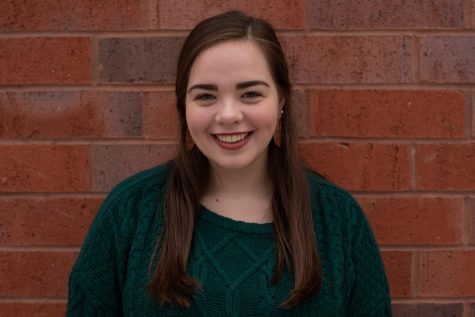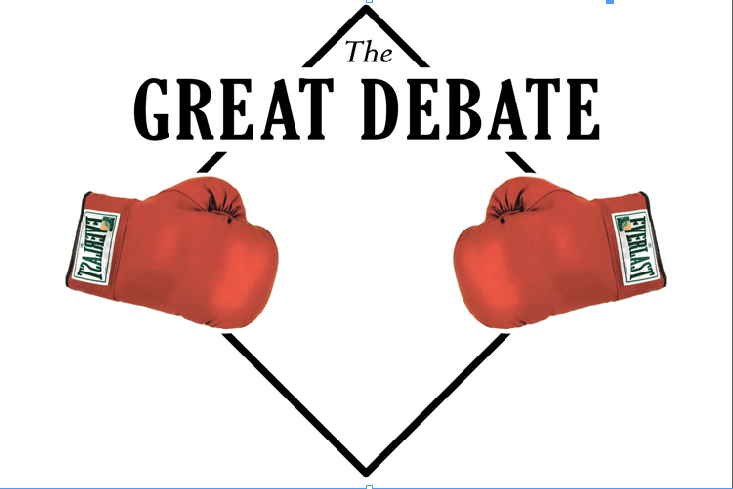Great debate
Which should come first: reading the book or watching the movie?
Watching the movie before reading the book is the easy path to the dark side — an agent of evil.
OK, OK. So maybe that’s a little melodramatic. But, seriously. Reading the book gives audiences several advantages when it comes time to see the movie adaptation.
For example, my sister, Carolyn, lamented that there is no good movie adaptation of “Wuthering Heights” because none of the movies capture the themes of the book. Viewers miss out on the meaning trying to be conveyed in the creation of the piece — information that helps shape our understanding of a text.
There are plot holes that movies often create, whereas books cover their bases. Movies never have more information than the book — they just don’t have the space to add all that information. (And a lot of it ends up being implied, so viewers won’t understand the references unless they’ve read the books.)
I could talk about this for ages when it comes to “Percy Jackson and the Olympians: The Lightning Thief.” There’s so much information that the movie left out, and it frankly made for a pretty terrible movie.
Movies miss out on the details. They’re only two or so hours long, so they just don’t have the room to include important information. But, books have plenty of room — sometimes, hundreds of pages.
For that reason, I argue that the movie industry relies on prior knowledge about the subject. It adds to their piece — allows them to take the information the book gives and create a multimedia experience for viewers that the book does not allow.
Most importantly, movies take away the readers’ ability to use their imagination that the books allow them to have. The reader pictures characters how they want them to be, rather than having the complete character on a silver platter.
Some may argue reading the books spoils the ending because the audience will already know it. Books are more challenging to get through than simply passively absorbing a movie, so there’s no point in reading the book once the audience knows what it will be about. That magic is gone.
Feel free to do whatever — be on the dark side and watch the movie first. But I’ll be sticking to the light side and adhering to my “read the book first” rule.
— Rebecca Mennecke, Currents Editor
Mennecke can be reached at mennecre0075@uwec.edu.
I know many people are die-hard believers that reading the book before seeing the movie adaptation is the only way to go.
I remember when I was in third grade and “How To Eat Fried Worms” was beings made into a movie. My mom came into my room one night and gave me the book, telling me I had to read it before we could see the movie.
Now, this was before I discovered my love for reading, and the idea of having to read a whole chapter book just to see a movie I didn’t really care about was not something I was about to do.
So, I never read the book and I never saw the movie.
In most cases this isn’t a huge loss. Maybe that story would have been the one to set me on a new path of life. Now I’ll never know how to eat fried worms.
My friend and I were lamenting on movies we had seen together in high school this past weekend, and “Divergent” was mentioned. We have wildly different opinions on that film and the main reasoning is that she read the book first and I didn’t.
The whole time she was watching the movie, she was upset by how much they were leaving out and how different it was from the book. I, on the other hand, was just enjoying the film as its own independent work of art.
I later went on to read the whole “Divergent” series and as I read the book I could acknowledge the things they did wrong in the film, but since I already had that affection for the film, getting a deeper insight through the book didn’t affect my emotions towards either work.
The Atlantic says reading the book beforehand makes it so people are “not going in as innocents but as experts; we know how the story goes, and we know what we expect. If we were more naive, new to the plot and characters, things might be different.”
That’s the point I’m trying to make.
Instead of going into every movie that’s based off a book with the idea that they’re not going to get it right and it’s going to be a disappointment, remember that it’s also its own work, a unique piece of art.
The characters may be the same, and the overall plot line will match up in spots, but no matter what anyone says, a film just can’t take a 300-page novel and capture it perfectly scene by scene and that’s OK.
— Tiana Kuchta, Chief Copy Editor
Kuchta can be reached at kuchtatl2952@uwec.edu.

Tiana Kuchta is a fourth-year English critical studies student. Outside of The Spectator, she enjoys spending her time reading, being with family, catching up on Netflix and being surrounded by cats.


